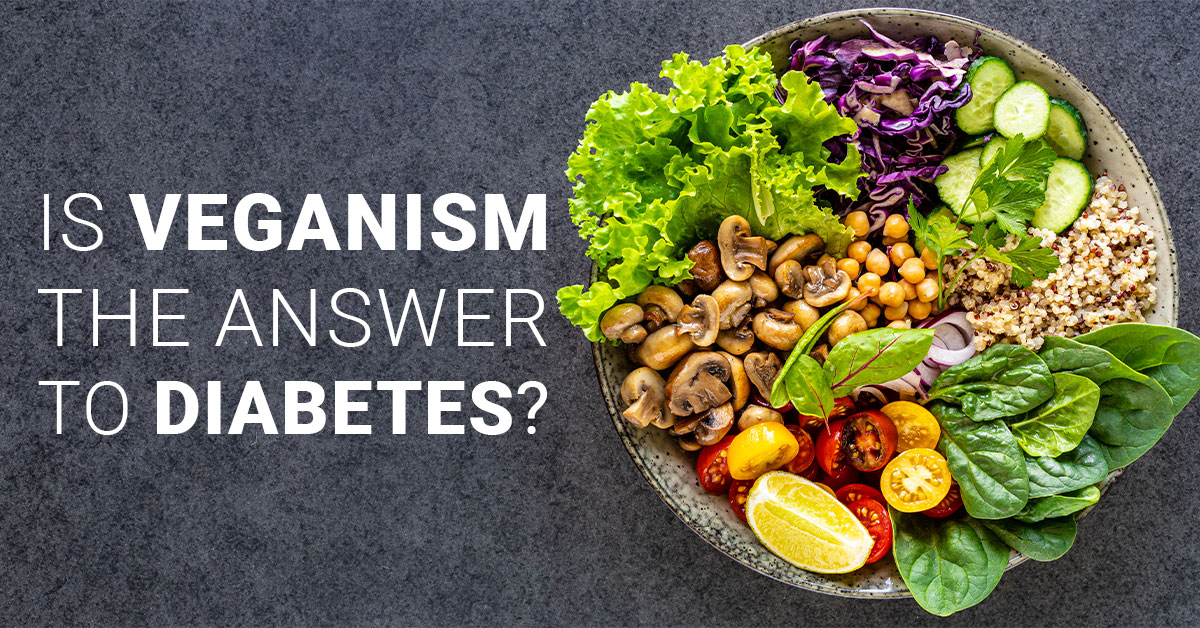
If you’ve been diagnosed with diabetes, you may be wondering how to lower your blood sugar levels. One of the popular options is switching to a vegan diet that excludes all animal products.
There are many different benefits associated with the vegan diet, but it’s essential to consider if it will help with your condition before you make the switch. While there are some claims that it can help you control your blood sugar and cholesterol levels, limited research is available.
Is a Vegan Diet Beneficial for Diabetics?
One of the most common questions people with diabetes have is how to maintain a vegan diet while also managing their diabetes. Many people with diabetes wonder if a vegan diet is beneficial for them.
The answer? Yes, it can be! There are some caveats, so read on to find out more.
While much of the food in a typical Indian diet isn’t healthy for a person with diabetes—including sugary soda and processed foods, which can cause blood sugar spikes—the opposite doesn’t hold. Not all healthy food is appropriate for people with diabetes, and some foods that are good for non-diabetics—like fruit and whole grains—can cause blood sugar spikes in people with diabetes. So what should you eat?
A vegan diet focuses on plant-based foods. These foods can be excellent choices for someone with diabetes because they tend to have a lower glycemic index, give you more consistent energy, and keep your blood sugar from spiking as quickly or dramatically.
But there are some things you need to watch out for: First, if you follow a stringent vegan diet, you may miss out on nutrients that come from animal products that your body needs, such as vitamin B12, calcium, and omega-3.
While there isn’t much research on the subject, some studies have shown that a vegan diet may help patients with diabetes control their glucose and insulin levels better than other diets. Research has also shown that this diet may help people with diabetes lose weight and lower their cholesterol levels. Researchers found that a vegan diet was beneficial for blood sugar management and weight loss and a reduction in medications needed to treat the disease. The researchers found that over 70% of participants were able to cut back on their diabetes medications after transitioning from an omnivore diet to a plant-based one.
Diabetes is a prevalent health problem in India and throughout the world. According to many surveys, approximately 70 million Indians are diagnosed with diabetes each year.
With such high numbers of individuals suffering from this disease, it’s essential to understand how dietary changes could impact a diabetic’s condition – and if specific diets may be more beneficial than others.
The overall conclusions can be summed up as follows. If you have diabetes, there are benefits to be gained by adopting a vegan diet, though you may need to work with your physician to do so safely. For example, most doctors recommend that you exercise caution about the kinds of foods you eat. Many plant foods, such as potatoes and bananas, cause blood glucose levels to spike, which is not suitable for people with diabetes. However, some of these foods may still be compatible with a diabetic diet plan, while others should be avoided. It all depends on your situation and recommendations from your physician or nutritionist. To get more educated about diabetes and get the best treatment and dietary advice, visit Regency Health here.
Request a call back


 Call-an-Ambulance
Call-an-Ambulance



